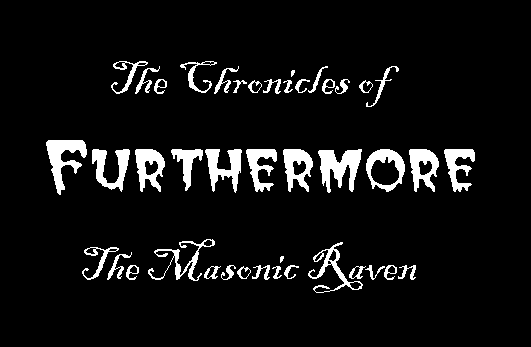|
FURTHERMORE DOES BUSINESS WITH THE BARD
Furthermore, my Masonic pet raven brother, and I recently left town. Hold
the applause. We came back, too, in the fullness of time.
This is the right time to leave Phoenix. The Valley of the Sun is now
officially the Surface of the Sun, tempers are short, eggs cook on the
sidewalk, small children melt, etc. Time to seek cooler climes.
So, we went to the Shakespeare Festival in Cedar City, Utah. It is an
exceptional festival that continues throughout the summer, as it has for
many years. We’ve attended before and always enjoy it. Pardon the plug. We’re seeking sponsors for these columns and you just never know who might
kick in.
Shakespeare, of course, is the ultimate role model for all writers. Here’s
a writer who did all right while he was alive and became a major industry
after he died. My personal goal is to have people studying the Chronicles
of Furthermore 500 years after I’m dead. Of course, the old bird will
probably still be around, but that’s another story. Can you imagine? Entire
academic programs and rituals built around this stuff? Shakespeare has
proven to be amazingly versatile. We study him in college literature
courses. We used to in high school English classes, too, back in the days
when high school students could still read.
However, the Bard is also making waves in a variety of other areas today.
For example, leadership and business management. What?! You doubt?!
Britain’s Prince Philip once noted, “A man can be forgiven a lot if he can
quote Shakespeare in an economic crisis.” Good advice. It confuses
everyone.
There is even a great book available at your local booksellers: Shakespeare
on Management by Jay M. Shafritz, another writer who has figured out a way
to scam a living by riding the coattails of the Bard of Avon. Don’t mind
me. I just wish I’d thought of it first. Most of the following I pretty
much stole from him, anyway.
So, the bird and I, went to the Shakespeare Festival to study management.
This way, we can write the whole thing off and, maybe, figure out a way to
expense it as a budgeted training seminar. We, too, are amazingly
versatile.
Lest ye doubt our sincerely of purpose, leave us quote to thee certain
words of wisdom from the Bard as they relate to our vocations. You got
that, right?
In the general business category of dressing for success, for example, Will
(we writers tend to be a familiar bunch) suggests in Hamlet:
“Costly thy habit as thy purse can buy,
But not express’d in fancy, rich, not gaudy
For the apparel oft proclaims the man.”
Or in the general area of “getting even” with troublesome colleagues, this
advise from The Merchant of Venice:
“The villainy you teach me, I will execute, and it
Shall go hard but I will better the instruction.”
In other, more contemporary words, ‘dis me and I’ll come back and kick your
tush.’ Or words to that general effect.
On business ethics, also from Hamlet:
“This above all: to thine own self be true,
And it must follow, as the night the day,
Thou canst not then be false to any man.“”
On strategic planning, or the lack thereof:
“For all sad words of tongue or pen,
The saddest are these: It might have been!”
All right. So I cheated. Shakespeare didn’t write that. John Greenleaf
Whittier did. But the Bard would have if he had thought about it.
On performance appraisals and recommendations, from Henry VIII:
“His promises were, as he then was, mighty;
But his performance, as he is now, nothing.”
Ooh. That hurts.
Shakespeare was even aware of what we today refer to as Murphy’s Law. Of
course, the Bard probably knew it as MacMurphy or even Hamlet’s Law:
“When sorrows come, they come not single spies,
But in battalions.”
That was King Claudius in Hamlet, and, Lord knows, he had plenty of sorrows.
Mostly of his own making.
And finally, on public relations, in the words of Iago in Othello:
“Reputation is an idle and most false imposition; oft
Got without merit, and lost without deserving.”
See what I mean? This stuff beats the Harvard Business School all to hell!
And everyone knows there’s no BS like HBS!
So, we’re studying management with the Bard, a fact that would probably
amaze him and cause him to mutter these immortal words, “Oh, hell…what hath
we here?”
That’s the Elizabethean version of “What the hell?”
| 